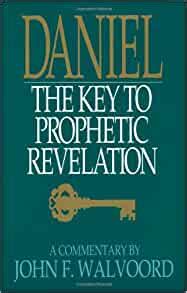A Quote by Karl Barth
What is offered to man's apprehension in any specific revelation of Christ is the living God himself.
Quote Topics
Related Quotes
The gospel is saying that, what man cannot do in order to be accepted with God, this God Himself has done for us in the person of Jesus Christ. To be acceptable to God we must present to God a life of perfect and unceasing obedience to his will. The gospel declares that Jesus has done this for us. For God to be righteous he must deal with our sin. This also he has done for us in Jesus. The holy law of God was lived out perfectly for us by Christ, and its penalty was paid perfectly for us by Christ. The living and dying of Christ for us, and this alone is the basis of our acceptance with God
It is impossible for any rational creature to be happy without acting all for God. God Himself could not make him happy any other way... There is nothing in the world worth living for but doing good and finishing God's work, doing the work that Christ did. I see nothing else in the world that can yield any satisfaction besides living to God, pleasing Him, and doing his whole will.
The glory of God is the living man, but the life of man is the vision of God', says St. Irenaeus, getting to the heart of what happens when man meets God on the mountain in the wilderness. Ultimately, it is the very life of man, man himself as living righteously, that is the true worship of God, but life only becomes real life when it receives its form from looking toward God.
Jesus Christ was God - the Personal God become man. He has manifested Himself many times in different forms and these alone are what you can worship. God in His absolute nature is not to be worshipped. Worshipping such God would be nonsense. We have to worship Jesus Christ, the human manifestation, as God. You cannot worship anything higher than the manifestation of God. The sooner you give up the worship of God separate from Christ, the better for you.
We are not preaching the Gospel of a dead Christ, but of a living Christ who sits exalted at the Father's right hand, and is living to save all who put their trust in Him. That is why those of us who really know the Gospel never have any crucifixes around our churches or in our homes. The crucifix represents a dead Christ hanging languid on a cross of shame. But we are not pointing men to a dead Christ; we are preaching a living Christ. He lives exalted at God's right hand, and He "saves to the uttermost all who come to God by Him."
That's who Jesus Christ is. He became the final Priest and the final Sacrifice. Sinless, he did not offer sacrifices for himself. Immortal, he never has to be replaced. Human, he could bear human sins. Therefore he did not offer sacrifices for himself; he offered himself as the final sacrifice. There will never be the need for another. There is one mediator between us and God. One priest. We need no other. Oh, how happy are those who draw near to God through Christ alone.
For the essence of sin is man substituting himself for God [Gen. 3:1-7], while the essence of salvation is God substituting himself for man [2 Cor. 5:21]. Man asserts himself against God and puts himself where only God deserves to be; God sacrifices himself for man and puts himself where only man deserves to be.
Where we go wrong is that we bring along some ready-made idea of God, wherever we may have learned it, and then try to make Jesus Christ fit in with that idea of God. But if we take the idea of a revelation of God in Christ seriously, then we must be willing to have our understanding of God corrected and even revolutionized by what we learn in Jesus Christ.
One major difference between Mormons and evangelicals on the subject of revelation is that Latter-day Saints believe that God has appointed modern-day prophets and apostles to receive revelation for Christ's church. All church members may receive revelation appropriate for their particular callings or positions within the church and their families, but never in contradiction to church doctrine or policy. So Mormonism has both a democratic practice of revelation that would resonate with evangelicals, but also an institutional understanding of revelation foreign to evangelicalism.





































